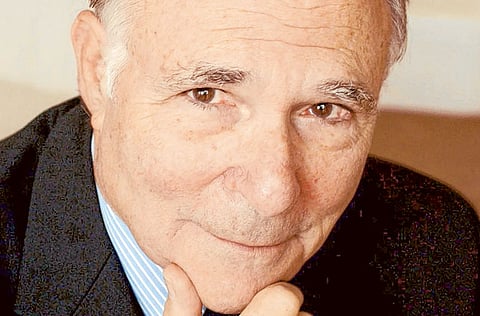You too can call one’s bluff with course on interpreting emotions
Ekman has studied the subtleties of deceptive behaviour and earned fame on TV shows

When is someone lying to you? Believe it or not, according to at least one expert immortalised in the TV series “Lie to Me,” there are basic tell tale signs that we can all learn to ferret out when a person is not being completely honest with us.
Theaverage ability of untrained people to distinguish between truth and lies is as low as 54 per cent, said Dr Paul Ekman, American psychologist and a leading authority on emotional intelligence and human communication, facial expressions and body language.
The American psychologist has also served as the scientific advisor to Fox TV’s popular series ‘Lie to Me’ which is based on his life’s work. The show’s main character Tim Roth plays a psychologist who assists in investigations due to his expertise in body language and micro expressions. Dr Ekman also served as an advisor for BBC TV’s ‘The Human Face.’
With emotions playing a major role in our daily thoughts and actions, and being a key factor in many of our relationships, many people can find it frustrating when they are unable to tell when they are being deceived.
Ekmanis now bringing his expertise to the UAE by offering three different courses on understanding emotions and evaluating truthfulness.
The courses are being offered through Dubai’s Transformation Institute in three sets running from November 24 to December 1 and are on offer to enable people to boost their social and professional skills by helping them identify facial micro expressions.
“The courses aim to develop skills and enable a person to better understand their own as well as other’s emotions through activities and information that is based on decades of research,” said Ekman in an interview with Gulf News.
Ekman, who has studied deceit for the past 30 years, explained that concealment of truth can occur in many different contexts between business partners or husband and wife but with training, false emotions or a ‘hotspot’ also referred to as ‘leakage’ can be spotted.
“A leakage is when your true feeling is betrayed by something that you do unwillingly,” added Ekman, who pointed out that a leakage is usually a facial expression that contradicts the person’s effort to conceal the truth.
Micro expressions on the face happen in as fast as one-twenty-fifth of a second, which makes most regular untrained people oblivious to the fact that an emotion is being concealed, said Dr Ekman.
With training, the average ability of a person to differentiate between truth and lies will increases from 54 per cent to 83 per cent, many reaching 90 per cent plus accuracy, he said.
“The course can help people understand the emotional parts of their life so they can better chose when they become emotional, what they become emotional about, and how they act or not act when they are emotional,” said Ekman.
Grasping verbal and non-verbal communications of others is also critical, he said.
Starting his research on facial expressions and body movement in 1954, Dr Ekman has also been studying deceit for over three decades.
“This branch of psychology has been given very little attention in virtually every region in the world,” said Ekman, who pointed out that the existence of the many different types of deception was one of the factors that attracted him to further study facial expressions.
Receiving his undergraduate degree at both the University of Chicago and New York University, the psychologist also received his PHD in clinical psychology at Adelphi University in 1958.


